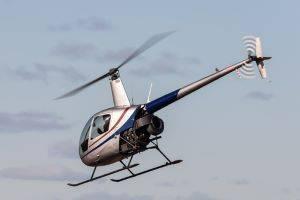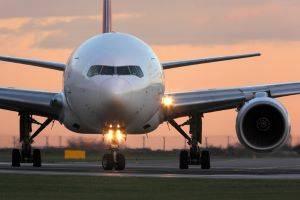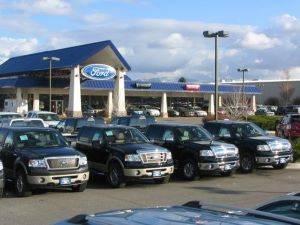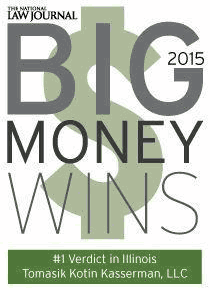Recent Blog Posts
California Judge Outlaws Uber and Lyft’s Attempt to Deny Employment Benefits to Drivers
 By: Jessica Black
By: Jessica Black
On August 20, 2021, a California judge issued a decision striking down a ballot measure in the state that had allowed rideshare companies to classify drivers as independent contractors rather than employees. The measure, known as Proposition 22, allowed rideshare companies such as Uber and Lyft to deny drivers employee benefits and job protections such as the right to sick pay, minimum wage, and health benefits. It also provided a liability shield that allowed Uber and Lyft to evade responsibility for the actions of their drivers.
Ride-hailing and delivery service corporations including Uber, Lyft, Postmates, Instacart, and DoorDash spent more than $200 million attempting to influence Californians to support the ballot measure. Uber and Lyft went so far as threatening to stop providing services in the state if the measure was not passed.
This behavior has become a common modus operandi for Uber, Lyft, and other companies across the United States. They have proven that they will spend millions in lobbying campaigns and targeted marketing to ensure their drivers do not become employees.
Lawsuit Proceeds Against Lyft for Failure to Disclose Safety Issues
 Lyft Inc. is facing a class action lawsuit brought by investors of its initial public offering (IPO). The case, In re Lyft Inc. Securities Litigation, U.S. District Court, Northern District of California, No. 19-cv-02690, alleges that Lyft failed to disclose a number of safety issues prior to the IPO. These issues include the pervasive sexual assaults by its drivers and defective brakes that affect its bike share fleet.
Lyft Inc. is facing a class action lawsuit brought by investors of its initial public offering (IPO). The case, In re Lyft Inc. Securities Litigation, U.S. District Court, Northern District of California, No. 19-cv-02690, alleges that Lyft failed to disclose a number of safety issues prior to the IPO. These issues include the pervasive sexual assaults by its drivers and defective brakes that affect its bike share fleet.
The lawsuit claims Lyft deliberately failed to report the safety information in an effort to market itself as more socially responsible than Uber. Uber is also facing a shareholder lawsuit about its disclosures on passenger safety and other issues ahead of its 2019 IPO.
Both Uber and Lyft have been the subject of immense criticism because they have failed to ensure that passengers are protected against sexual assaults by their drivers. Hundreds of passengers continue to be victimized by rideshare drivers each year.
Another Robinson Helicopter Crash Demonstrates Why TKK Continues to Represent Victims of Robinson's Poor Design
 A recent Robinson Helicopter crash has left its pilot hospitalized. The Federal Aviation Administration (FAA) is investigating a helicopter crash that took place just after 6:30 a.m. on August 11, 2021 in Prospect Heights, Illinois. Unsurprisingly, the helicopter involved was an R44 manufactured by the Robinson Helicopter Company.
A recent Robinson Helicopter crash has left its pilot hospitalized. The Federal Aviation Administration (FAA) is investigating a helicopter crash that took place just after 6:30 a.m. on August 11, 2021 in Prospect Heights, Illinois. Unsurprisingly, the helicopter involved was an R44 manufactured by the Robinson Helicopter Company.
Thankfully, the pilot and sole occupant of this latest R44 crash survived the ordeal. Reports indicate that the pilot took off from Chicago Executive Airport around 6:39 a.m. and reported a mayday due to engine failure just one minute later.
The pilot told WGN News that the engine failed upon takeoff, and he implemented emergency procedures, which allowed him to do a running landing. The helicopter’s rotor hit a pole on the way down.
Tim Tomasik, Tomasik Kotin Kasserman co-founder and partner, is currently representing other victims of Robinson Helicopter crashes. One case involves a crash that took place on October 23, 2019. This crash involved a Robinson R44 helicopter that had departed from the North Las Vegas Airport. In total, almost 600 people have been killed in crashes of Robinson helicopters since 1982.
$34 Billion Fitness Giant, Peloton, Loses its Weekslong Battle With Safety Regulators
After weeks of resistance, more than 40 injured children, and a precipitous stock decline, Peloton has followed the advice of safety regulators and advocacy groups and recalled more than 125,000 units of its latest treadmill model, Tread+. It is now offering full refunds for the $4,295 machines, effective until November 6, 2022.
The move comes seven weeks after Peloton’s CEO, John Foley, announced that he had learned of one death and a “small handful of incidents” related to children getting trapped underneath the newly released treadmill.
Federal regulators quickly responded to CEO Foley’s announcement and learned that the “small handful of incidents” actually numbered around 40, including the death of a 6-year-old. On April 17, 2021, the Consumer Product Safety Commission, chaired by Congresswoman Jan Schakowsky (D-Ill), issued a report that admonished consumers to stop purchasing the treadmills altogether. But instead of recalling the treadmills, Peloton held its ground for weeks, accusing the CPSC of issuing false and misleading reports. As Peloton continued to fight, children continued to get hurt, and the company’s stock continued to drop.
Survivors of Aviation Crashes and Mishaps Can Recover for Psychological Injuries
 By: Timothy S. Tomasik and Eddie Hettel
By: Timothy S. Tomasik and Eddie Hettel
Contrary to what airlines often assert, in many cases, victims of airline crashes can recover for both their physical injuries and the psychological injuries attributable to the crash. Under Article 17(1) of the Montreal Convention of 1999, a multilateral treaty concerning compensation for the victims of air disasters, psychological injury alone is not sufficient for a claimant to recover damages against an airline. However, courts have awarded damages for such injuries that are “traceable to” the crash itself, so long as a physical injury is also present.
Historically, courts required a mental injury to “flow from” a physical injury to be compensable. See Eastern Airlines v. Floyd, 499 U.S. 530 (1991) (passengers on flight with imminent belief of crash in Atlantic Ocean could not recover for mental injuries alone); see also In re Air Crash at Little Rock Arkansas, on June 1, 1999, 291 F.3d 503, 511 (8th Cir. 2002) (in accordance with the “flowing from” rule, plaintiff could only recover emotional damages which flowed from her physical injuries, not the incident itself). However, these cases were decided under the Warsaw Convention, the predecessor to the Montreal Convention.
High Charges and Illegal Fees Leave Many COVID-19 Test Recipients in Debt
 By: Eddie Hettel
By: Eddie Hettel
Timely, accurate health information is a necessity during a global pandemic. People across the country obtain COVID-19 tests for a multitude of reasons that ultimately share a common goal – health and safety. Despite their proactivity, many COVID-19 test patients are being penalized rather than rewarded by healthcare providers.
The New York Times recently reported the astronomical testing fees charged by some healthcare providers. Lenox Hill Hospital in Manhattan consistently charges patients over $3,000 for a routine nasal swab test. Huntington Hospital on Long Island charges patients up to $2,793 for a drive-through test. One family was shocked to learn that they had accumulated $39,314 in charges for 12 precautionary tests taken before returning to work and school.
The average cost of a COVID-19 test is typically between $100-$200, so why are certain providers charging such high fees? Many hospitals are able to bill the test as an emergency room visit, allowing them to charge additional fees beyond the test itself. Other providers bill for all services necessary to obtain a test, such as a doctor visit or facility fee. Any patient walking in without a prior doctor’s order for a test could find themselves paying for a facility fee, emergency department visit, and doctor’s examination, along with the cost of their actual test.
Supreme Court of the United States Rules That Ford Must Face Trial Where Deadly Crashes Occurred
 By: Eddie Hettel
By: Eddie Hettel
A recent decision by the Supreme Court of the United States will make it easier for victims of negligence to pursue their claims in the forum of their choosing.
In Ford Motor Co. v. Montana Eighth Judicial Dist. Court, the Supreme Court considered consolidated cases alleging damages resulting from a defective Ford vehicle. In each case, a state court ruled that it had jurisdiction over Ford Motor Company in a product liability suit resulting from a motor vehicle accident. Ford asked to have both suits dismissed, claiming lack of personal jurisdiction. Ford argued that state courts had jurisdiction only if conduct by the company in the state had led to the plaintiff's claims. Ford argued that such a link existed only if the specific vehicle that was involved in the accident had been designed, manufactured, or sold in the state.
How Lyft and Uber – With More Lobbyists than Amazon, Microsoft, and Wal-Mart Combined – Bought, Bullied, and Bamboozled Their Way Into a Deregulation Free For All
Using unprecedented numbers of lobbyists, rideshare companies have quietly secured legislation (often authored in their own hand) in 41 states that endangers the safety of drivers and riders.
After spending hundreds of millions of dollars lobbying state legislatures, Lyft and Uber have been permitted to operate without any genuine oversight or concern for driver and passenger safety. Astoundingly, their aggressive lobbying tactics have given these companies license to operate in nearly every city in America with total impunity.
Lyft and Uber’s success in slashing or eliminating safety protections for drivers and passengers is unsurprising, however, in light of the army of lobbyists they have deployed to craft legislation in statehouses nationwide.
In fact, in 2016, lobbyists for Lyft and Uber outnumbered Microsoft, Amazon, and Walmart combined, and their influence on lawmakers has continued unabated – they’ve managed to obtain favorable, protectionist legislation in 41 states.
Hospitals Use Outdated Lien Laws to Profit from Injured Patients
 By: Eddie Hettel
By: Eddie Hettel
As this recent story from the New York Times documents, American hospitals routinely exploit archaic healthcare lien laws passed early in the 20th century to profit from injured patients. These laws were passed at a time when fewer than 10 percent of Americans had health insurance in an effort to protect then-vulnerable hospitals from the financial dangers attendant to providing care to uninsured patients. A noble goal though it may have been, now, in a time when health insurance is a pervasive and integral part of the American healthcare landscape, these laws only serve to exploit patients who have suffered injuries through no fault of their own.
Medical care providers nationwide, whose ownership has grown increasingly consolidated, negotiate and execute complex agreements with health insurance companies to provide services at a discounted rate. This practice permits hospitals to enormously overcharge for services knowing that they will accept substantially less as full payment from health insurance companies.
Big Healthcare Attempts to Deny Victims of Malpractice the Right to a Jury Trial
 Private equity firms are expanding into healthcare at an alarming rate. In the past 10 years, they have purchased more than 4,000 Women’s Health Clinics, and current estimates have the industry owning more than 10% of the United States’ dermatology market. In the past 5 years alone, private equity has invested more than $10 billion in medical practices. And, as they expand into healthcare, they’ve brought their ruthless business tactics with them.
Private equity firms are expanding into healthcare at an alarming rate. In the past 10 years, they have purchased more than 4,000 Women’s Health Clinics, and current estimates have the industry owning more than 10% of the United States’ dermatology market. In the past 5 years alone, private equity has invested more than $10 billion in medical practices. And, as they expand into healthcare, they’ve brought their ruthless business tactics with them.
The private equity business model is well-known: buy loads of fledgling businesses for cheap, group them together, frantically cut costs, and sell high to a bigger investment firm. Applying that model to healthcare not only results in substandard care, but it also results in a deprivation of constitutional rights.
I am primarily talking about mandatory arbitration clauses, an industrywide favorite amongst the private equity firms. Private equity attempts to use these clauses to cut business costs by drastically decreasing injured plaintiffs’ ability to receive just compensation from a jury caused by medical negligence.

 312-605-8800
312-605-8800
 By
By 



 312-605-8808
312-605-8808






